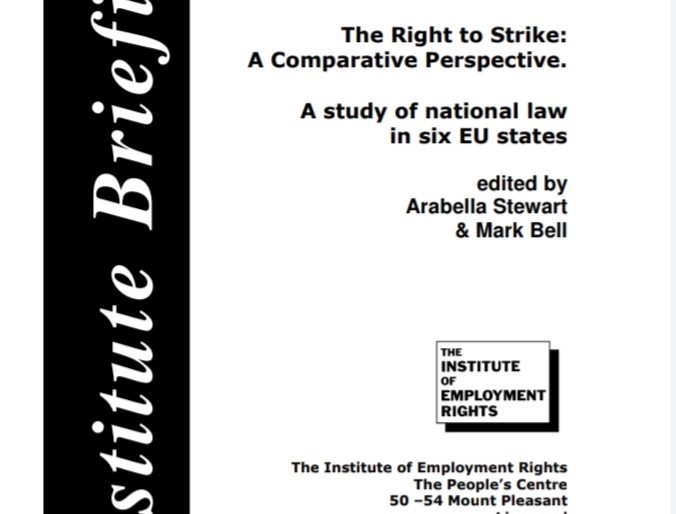The Right to Strike: A Comparative Perspective
A study of national law on the right to strike in six EU states.

Introduction
The impact of the European Union on national law concerning the right to strike was clearly illustrated by the decisions of the European Court of Justice in the cases of Viking and Laval. In both cases, the Court held that collective action, where it has a transnational dimension, could be contrary to the economic freedoms guaranteed by the EC Treaty. In seeking to understand the full impact of these judgments, it is important to gain greater insight into the current state of national legislation with regard to key topics, for example, the scope for solidarity action and the impact of strike action on the individual contract of employment. This report presents a comparative study of the national law in six EU Member States: Belgium, France, Germany, Italy, the Netherlands and the UK.
The report is based on papers prepared for a conference held at the University of Leicester, 15-18 April 2008. Each year, the European Working Group on Labour Law brings together students from a variety of European universities to examine, with a comparative perspective, a contemporary issue in labour law. Accordingly, the theme of the 2008 conference was ‘a comparative perspective on the right to strike’. In advance of the conference, the student participants prepared papers analysing the state of their national law on the right to strike following a common template of questions. These papers can be found in the subsequent chapters of this report. In addition, the final day of the conference devoted special attention to analysis of the Viking/Laval judgments. A summary of the conference proceedings is included in this report, whilst several of the conference papers have been published in Federation News.
The organisation of the conference, and the subsequent preparation of this report, could not have been achieved without the support of several organisations which provided generous sponsorship: the Modern Law Review, Thompsons Solicitors, and the University Association for Contemporary European Studies. Particular thanks are also due to Pascale Lorber (University of Leicester), who co-organised the conference, and Carolyn Jones (Institute for Employment Rights), who facilitated the production of this report.
Downloads
- TheRighttoStrikeAComparativePerspective.pdf - 861.03 KB




